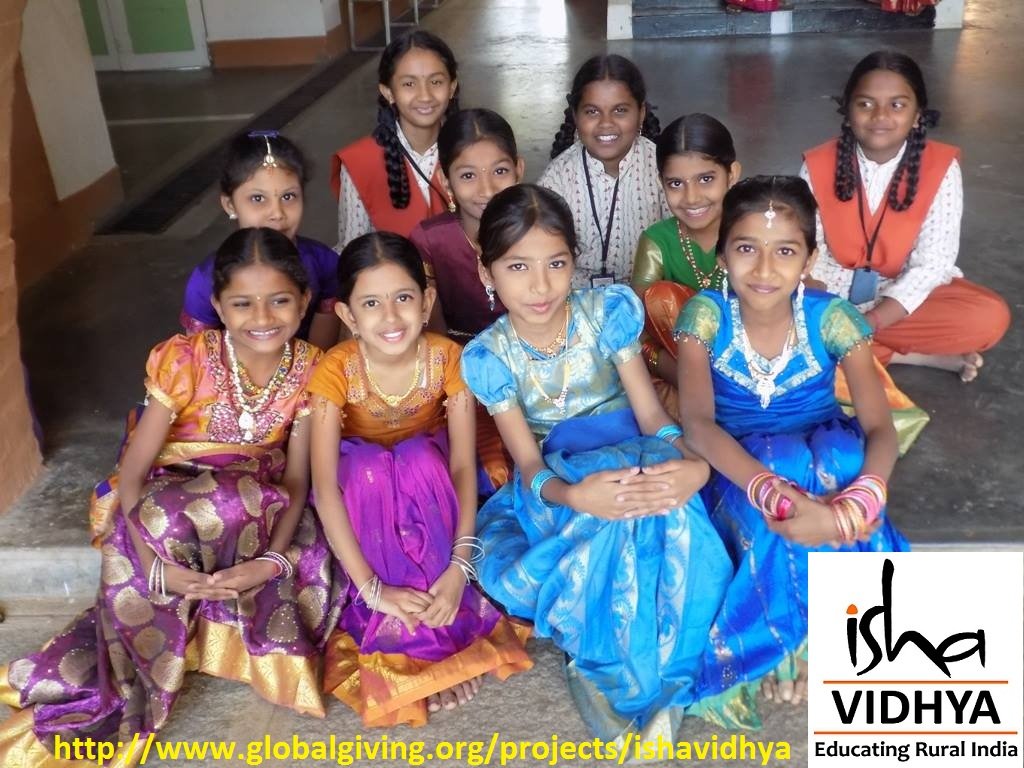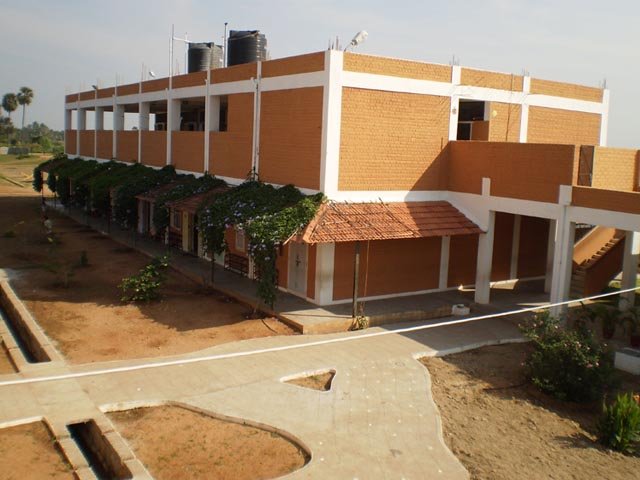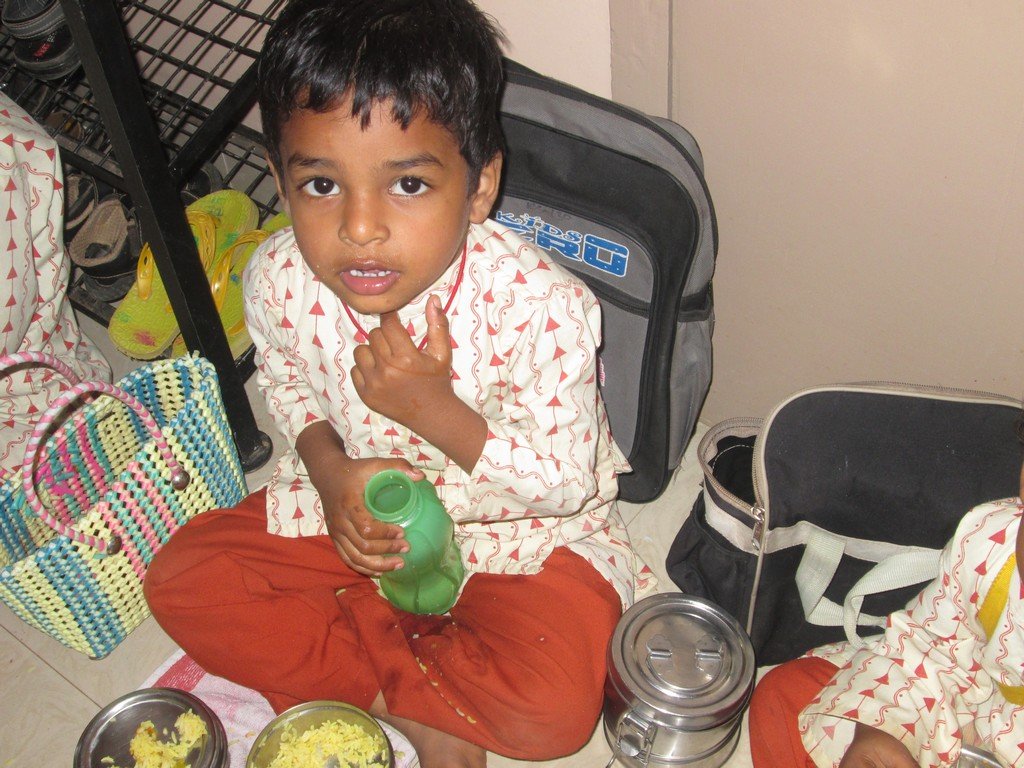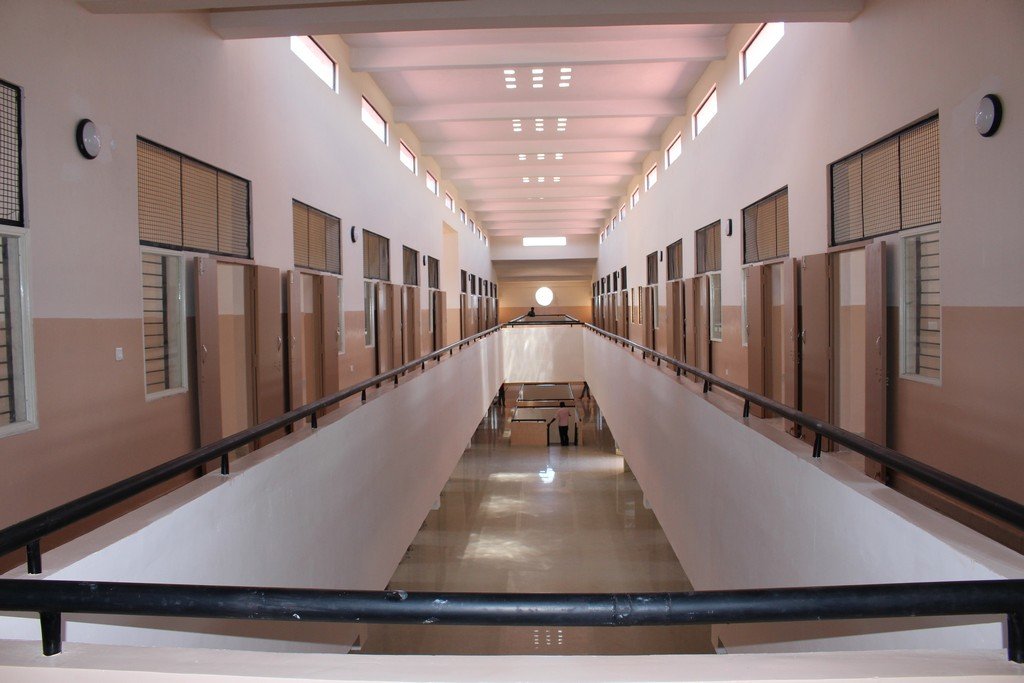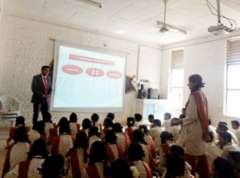By Venkat Ramakrishnan | Project Leader
Stories towards the best social media experience!
Social media exposure is a critical component of creating
awareness about our project. Great content, Search Engine
Optimization, effective usage of hash tags, timing our posts
strategically, sharing awesome photos are all part of the efforts
towards that goal. Especially, photos play an important role in
sharing our stories online, which not only get us 'Excellent'
rating for our reports at Global Giving, but also creates the
excitement in terms of likes, reactions, shares and retweets
in social media platforms like Facebook, Twitter and Instagram.
In fact, we had won the Global Giving Photo contest 2016!:
https://www.globalgiving.org/poll/photo-contest-2016/
What we tried:
So, we wanted our schools to take pictures of all the events
that take place in the schools - education methodologies,
visitors and volunteers visits, "Profession with Passion" series
talks, to name a few.
We bought digital cameras and gave them to all our schools,
so that they can take the photos with these. We also conducted
a few sessions about how to operate those cameras.
We failed. Why?:
The photos taken so far are not consistent in terms of quality,
and were not up to the mark.
What we learnt:
How are we using that experience to improve our work?:
First and foremost, we definitely felt the need for a standard
set of guidelines for taking pictures. We decided that the
guidelines should not be just a document sitting in the Google
Drive, but something that anyone can refer to before taking
the pictures.
We also realized that since the people who take the pictures
will change, we need to have a mechanism for the schools to
know that such a set of guidelines exist, and the school admin.
or the Principal should make the person who take the pictures
aware of such guidelines well in advance before the event to
avoid last minute surprises.
The guidelines that we came up with:
(Note: we shared what constitute great photos along with
our guidelines)
1. Contact the person (Name, Mobile number) with technical
knowledge about taking photos and the digital cameras in case
if you have any questions or if you have technical difficulties,
well in advance before the event.
2. A typical set of photographs for an event should have 7 to 8
photos. Some events like cultural programs may have more
additional photos which is fine.
3. All photos should be taken with HIGH resolution. The photos
should be re-sized to 1024x768 pixels using the custom
software provided to all schools, before being sent to be used
in the reports.
4. Use night lighting/flash appropriately depending on the
weather/light situations.
5. Make sure that light is coming from behind you (the
photo taker), and light that's coming from the sides like
windows is not creating a bad effect on the photo.
6. Take moving objects photos with proper settings. The
point-of-contact person can help you with how to adjust the
settings.
7. Avoid too far (or) out of focus objects.
8. While covering activities like students work or volunteers
work, please make sure that the photos cover all phases
of activity, not just the end products. For example, if students
are making Diwali lamps, make sure you take photos of children
starting to work with the chart papers, gluing the components
of lamp together, applying colors, etc. rather than just a lot of
photos of finished lamps with children.
Some examples of great photos and bad photos attached.
Conclusion:
We are extremely happy to have come across Global Giving's
structured feedback, learning from failures, and follow-up to
correct and move-forward mechanisms to improve our processes.
Taking part in Global Giving's various initiatives has enriched our
knowledge and experience about how to go about this.
We constantly strive to give the best for the constituents and the
beneficiaries in the field whom we work with, and initiatives like
Fail-Forward provide us with the opportunity to admit the failures
we had in the field, express ourselves, and improve towards a
better tomorrow!
Thank you Global Giving!
Links:
By Venkat Ramakrishnan | Project Leader
By Venkat Ramakrishnan | Project Leader
Project reports on GlobalGiving are posted directly to globalgiving.org by Project Leaders as they are completed, generally every 3-4 months. To protect the integrity of these documents, GlobalGiving does not alter them; therefore you may find some language or formatting issues.
If you donate to this project or have donated to this project, you can receive an email when this project posts a report. You can also subscribe for reports without donating.
